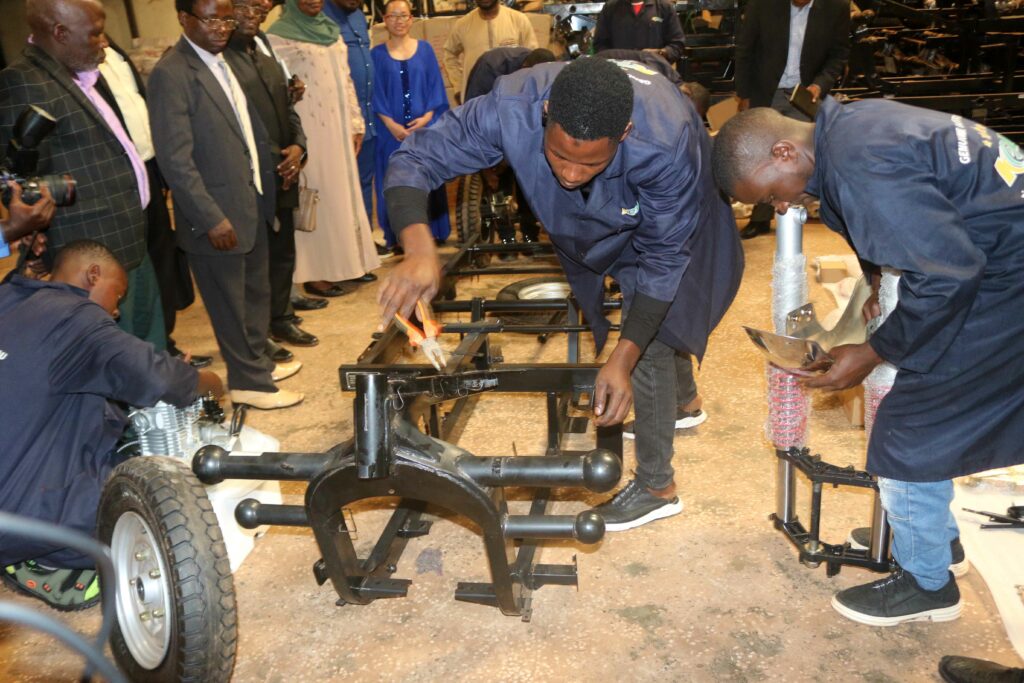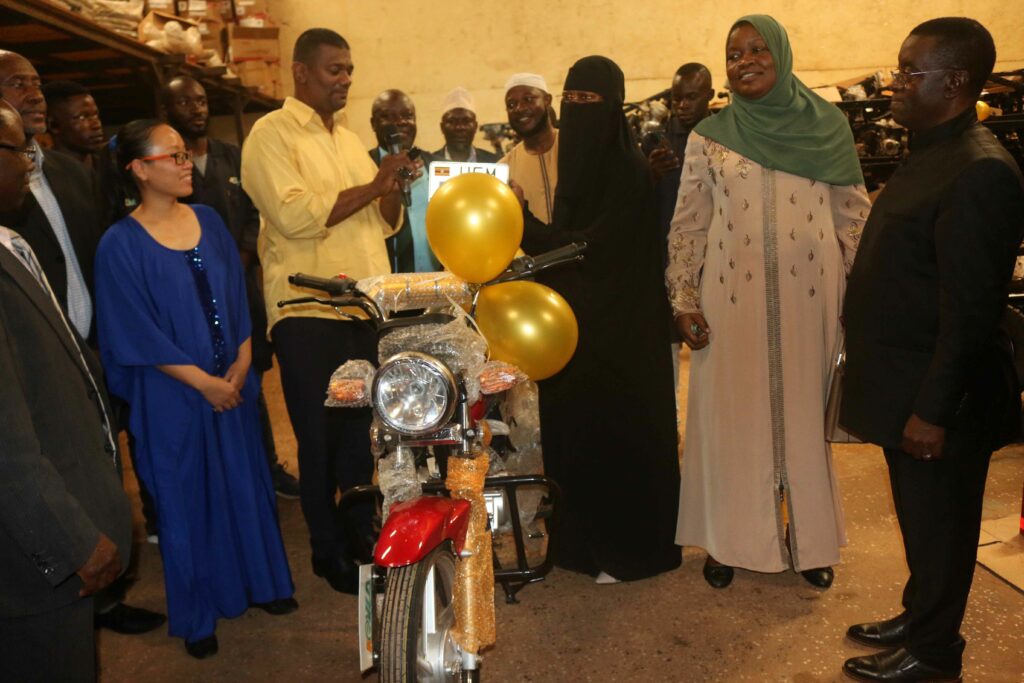Agnes Nantambi
Farmers Under the International Farmers dialogue have asked the government to embrace supporting farmers to transport their farm produce to the markets as a way of promoting incomes.
Through their President Dr. Hajji Jamil Ssebalu, the in charge of Africa and Uganda specifically, the farmers claim that instead of government giving PDM money to engage in other income generating activities, it can be used to support transportation of agricultural produce to the markets while at the same time make more money.
Speaking during the launch of KevLA Tricycle Tukutuku, Dr Ssebalu stressed that most farmers are counting losses due to lack of transport from the gardens to the markets yet such tricycles can be of help to transport agricultural produce.
He however said that with Chinese investors bringing an assembling plant in Uganda, this can support many farmers whose products have been rotting in gardens.
“This is a very essential product for the Ugandan farmers because we have a problem. Uganda was called the pearl of Africa because it was supplying food to neighboring countries especially in East Africa but this has changed.
Today all the onions come from Tanzania, mangoes, oranges, Carrots, cabbages come from Kenya, and what are we supplying, nothing,” he wondered.
As Farmers he said they have done research which has helped to establish that the problem is not the laziness of people, nor the issue of land but the problem is transportation noting that if KeVla tukutuku comes, it would provide an answer.
Dr. Sebalu implored the Ministry of Finance to adopt their strategy as farmers, where by the One million PDM money given to each person, can help people join into a cooperative of nine people and buy the one tukutuku at sh8.6m and use it to pick produce from the gardens while also renting it out to other people to earn from it.
He said that embracing the use of Tricycle Tukutuku, poverty alleviation is going to be managed, noting that farmers’ support cannot be easy if the farmers cannot sell what they plant.
He explained that a tipper truck cannot go into the plantation because it skids and cannot get out of the garden making it very expensive as it will require the tractor to pull it out.
“With the tukutuku, it can navigate through the gardens to pick the small quantities like 15 matookes and they are taken to markets as the farmer also gets some profits.

If you hired a tipper to pick 15 Matookes from the garden, how much will you have spent, that means all the profits will go,” he observed.
He said the most demotivator to farmers is the failure to get profits from their produce since most of the profits disappear through the transportation and distribution of the products, but if Tukutuku comes with the least cost of transport, that means the farmers will remain with a margin of profit.
“Farmers are demotivated because they are getting nothing out of farming and that’s why they are leaving it. KeVla Tukutuku is an answer which can be embraced by every Organisation including banks which give out money to ensure that they embrace the nine people strategy coming together with nine million each and buy the Tukutuku at sh8.6m as they also use it for other things,” he said
While launching the KeVla Tukutuku Tricycle, the mayor Kampala central Salim Uhuru applauded the KeVla investors for their efforts in creating jobs for the Ugandan youths including easing life for the farmers.
He said that with industrialization the government is promoting such a means of transportation that can support issues of value addition where farmers can transport their produce directly to the value addition centers.
Sylive long the director KeVla company Uganda said within the five years, the company has managed to employ over 36 workers and given them skills of assembling.
She said the company is considering setting up a huge plant that will be manufacturing the spare parts to reduce the importation of the spare parts.
In future, we want to bring the factory here so that we increase on the job opportunities for Ugandan youth and also give them give them skills for self-sustainability






